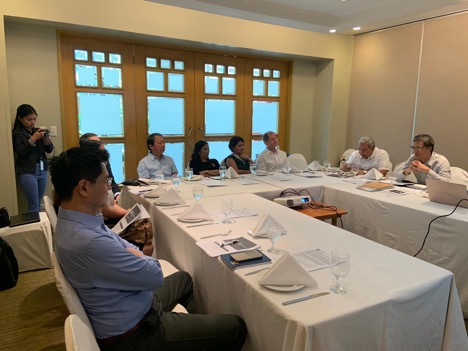by Taila Mueller

Philanthropy and public sector efforts to date in Asia tend to focus on K-12 and university education support with the intention to equalise opportunities and the playing field for the poor, vulnerable and marginalised. Studies, however, increasingly point to the criticality of early childhood education (ECD) and development programmes, including nutrition, and their long term impact on the welfare of its beneficiaries.
Put simply, children with a poor start suffer into adulthood. With increasing momentum on this issue area, thanks to a newly launched regional Member Interested Group, APC engaged its Filipino members and guests working in the space to have a discussion on ECD in the Philippines in Manila on 2 April.
The discussion overviewed the current state of ECD in the Philippines. One APC Filipino member explained that while the Philippines Department of Education (DEPED) has developed a standardised curriculum for ECD programmes, their operationalisation at the local level varies greatly. Local child development centers at the Barangay are mandated to provide care and activities for children, but urgently need support and capacity building.
The Zuellig Family Foundation (ZFF) also shared its experience with its launched programmes in nutrition governance that aim to curb stunting – the lagging growth of children from malnutrition that has irreversible consequences on education and health – by working with and holding local mayors accountable to delivering the resources and budget earmarked by the national and local governments to address this rising problem.
While many ASEAN countries are successfully seeing declining rates of stunting, in the Philippines, stunting rates are increasing. ZFF has partnered with Nutrition International to launch a pilot programme that addresses stunting in the urban context, with a focus on adolescent girls, marginalised communities and the triple burden of malnutrition (stunting, obesity and micro-nutrient deficiencies).
APC members and guests shared their relevant work in the ECD and nutrition space and surfaced some of the immediate issues that need to be addressed, in particular the recognition that while many government departments address various segments of child development and nutrition, there was no integrated lifecycle approach.
Recognising that this is where philanthropy can play a role, the meeting ended with the agreement to explore the possibility of establishing a joint framework and coordinating efforts in one geography.
